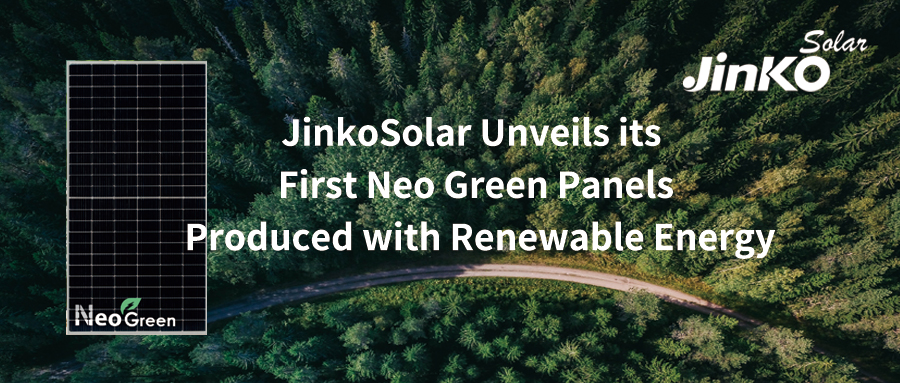the first zero carbon solar panel Jinko Neo Green 635W
China’s renewable energy industry takes a new step forward with the introduction of Jinko Neo Green 635W solar panels, designed to minimize their carbon footprint from the production stage. JinkoSolar, leader in the photovoltaic sector, stands out for this innovation which marks a turning point towards more sustainable production.
Context of innovation
The world is rapidly moving towards energy solutions that not only meet growing energy needs but do so in an eco-responsible manner. JinkoSolar, aware of these challenges, is developing advanced technologies to meet this dual requirement. Their new Neo Green solar panels, in particular, represent a significant step forward.
Characteristics of Neo Green 635W solar panels
These panels are produced at the Leshan, Chuxiong and Shangrao facilities, which have the advantage of being entirely powered by renewable energy sources: solar, hydroelectric and wind. These production sites are among the first to be certified “Zero Carbon Factory” by TÜV Rheinland, a label which guarantees that operations are carried out without carbon emissions.
Environmental and economic benefits
Neo Green 635W panels use recycled materials, reducing reliance on non-renewable resources and minimizing industrial waste. This not only helps reduce the environmental impact of their production but also improves the carbon footprint of the entire renewable energy value chain.
Additionally, the energy efficiency of Neo Green panels is optimized to maximize energy output, providing significant long-term economic benefits for both businesses and consumers. This efficiency, combined with the use of clean production technologies, positions JinkoSolar as a leader in the innovative renewable energy sector.
Future impact and outlook
The introduction of the Neo Green 635W solar panels by JinkoSolar is an example of how technological innovations can play a crucial role in the global energy transition. With a focus on sustainable production processes, JinkoSolar not only meets the growing demand for renewable energy; the company also helps set new standards in the industry for environmental friendliness.
JinkoSolar’s initiative could encourage other industry players to adopt greener practices, thereby contributing to an overall reduction in carbon emissions linked to energy production. This could, ultimately, positively influence energy policies and environmental regulations on a global scale.
Conclusion
JinkoSolar’s Neo Green 635W solar panel represents a major breakthrough in the field of renewable technologies. Through its zero-carbon approach, it embodies the future of solar energy production, where technological innovation and environmental responsibility go hand in hand. This is a significant step towards a more sustainable future less dependent on fossil fuels.
